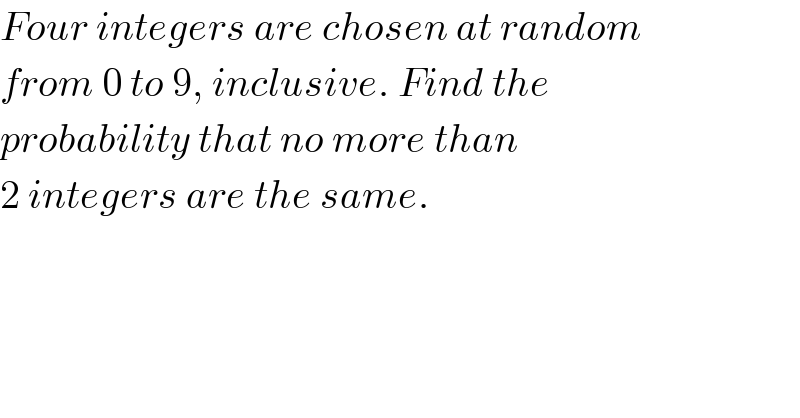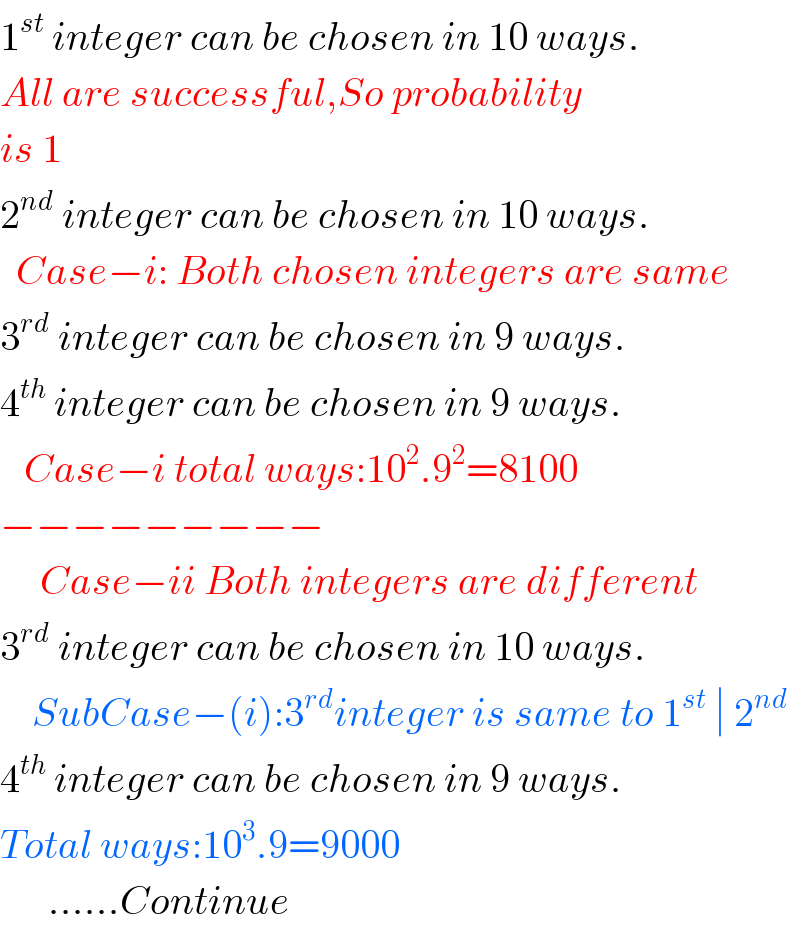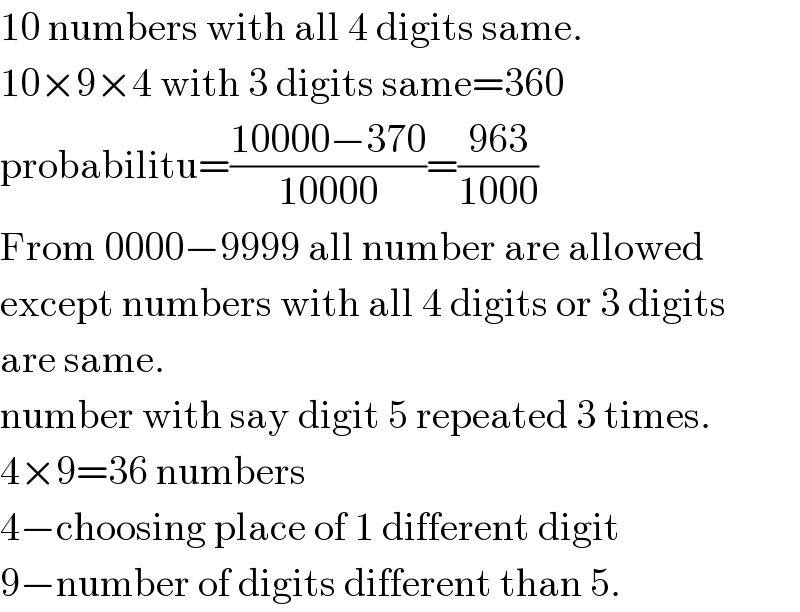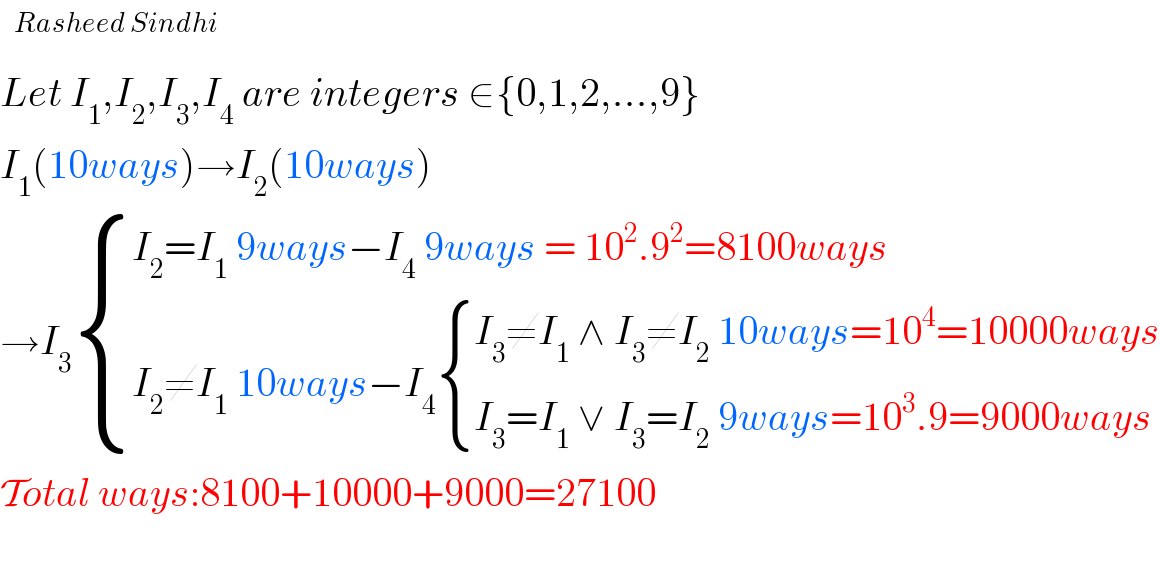
Question and Answers Forum
Previous in Permutation and Combination Next in Permutation and Combination
Question Number 3881 by Yozzii last updated on 23/Dec/15

Commented by RasheedSindhi last updated on 24/Dec/15

Commented by Rasheed Soomro last updated on 25/Dec/15

Commented by prakash jain last updated on 24/Dec/15

Commented by Yozzii last updated on 24/Dec/15

Answered by Rasheed Soomro last updated on 24/Dec/15

Commented by prakash jain last updated on 24/Dec/15

